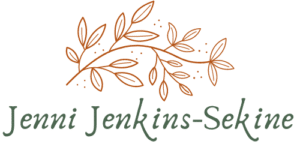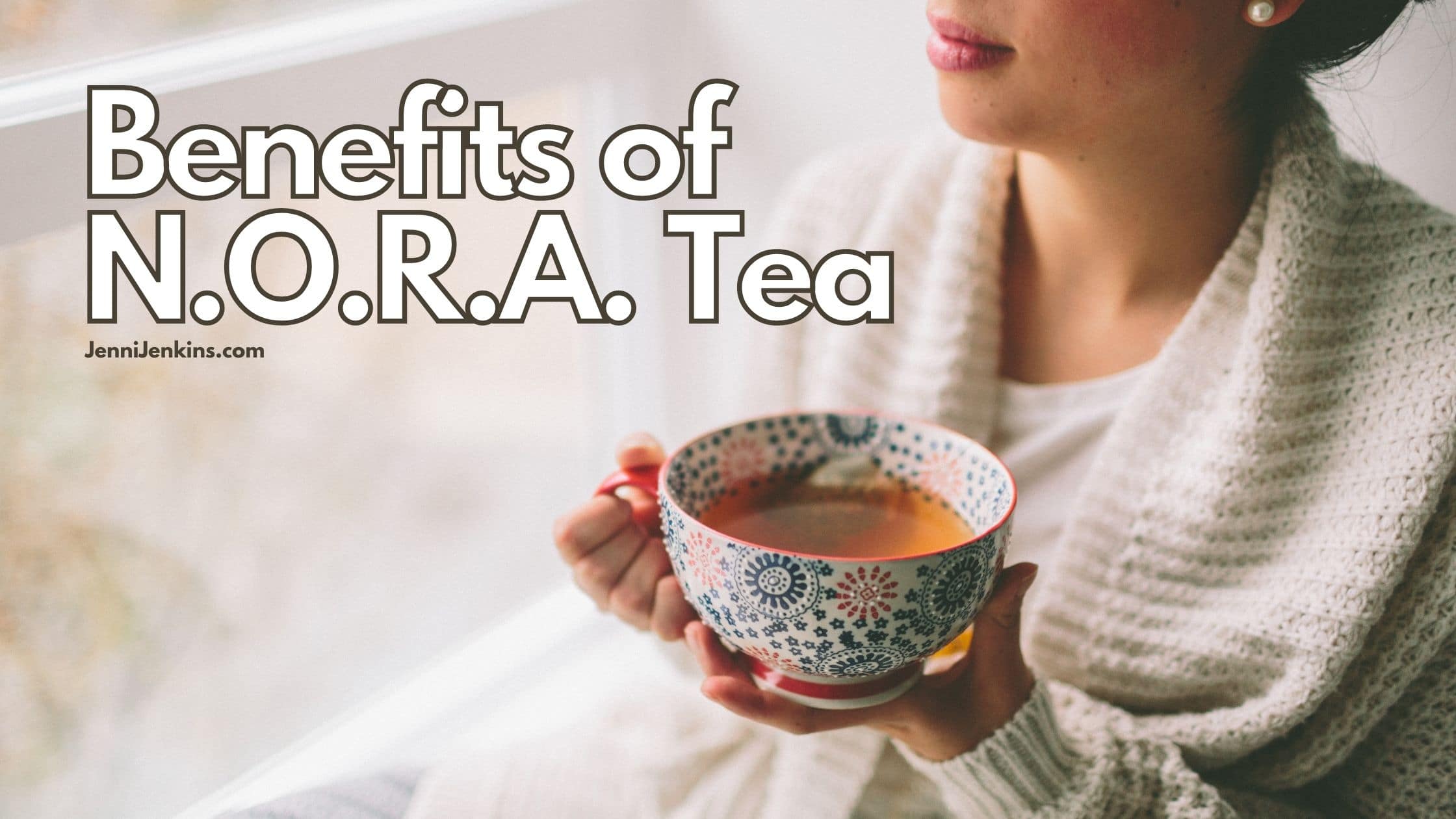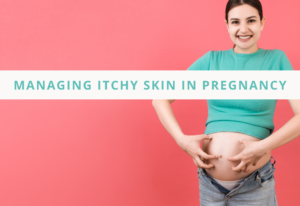Table of Contents
What is NORA Pregnancy Tea?
So what is N.O.R.A tea? N.O.R.A. stands for nettles, oat straw, red raspberry leaf, and alfalfa. This fantastic pregnancy tea (any time of life tea really) is a powerful way to naturally supplement your body with nutrients through food. Each ingredient of NORA pregnancy tea is super charged with highly nutrient dense food based supplements! By combining the health power of nettles, oat straw, red raspberry leaves, and alfalfa, you can create an immune boosting, relaxation inducing, health drink for your every day needs.
1. Nettles
Nettle tea is an herbal tea made from the leaves of the nettle plant. etc. The nettle plant has been used for centuries in natural medicine. This is because nettle tea is packed with vitamins and minerals including vitamin A, vitamin C, vitamin K, potassium, iron, & magnesium. It is an extremely nutritive plant, high in vitamins and minerals, particularly iron, silica and potassium, and is showing broad antifungal effects as well (Stricker).
A study published in the Journal of Ethnopharmacology found that nettle tea has antimicrobial, antiulcer, and antibacterial properties that may prevent infection (Gülçin)!
Another amazing thing about nettle as a tea is that it is a natural nervine! Nervine agents help you relax and reduces anxiety.
2. Oatstraw
Oat straw can be an anxiety game changer for everyone, pregnant or not! Researchers believe that the alkaloids found in oats are what encourages reduced anxiety and stress, leading to increased feelings of relaxation.
Oat straw can give your nervous system a preventative and protective boost, relieving feelings of exhaustion and depression. This plant also can help reduce blood pressure and balance your hormone production. By doing this, you can alleviate issues with varicose veins and hemorrhoids which can be an uncomfortable yet common part of pregnancy.
3. Red Raspberry Leaf
You may have already heard of using Red Raspberry Leaf tea to reduce menstrual cramps or to help tone the uterus. Yet red raspberry tea is also beneficial for supporting respiratory, digestive and uterine health. The plant’s leaves are a natural powerhouse for the pregnant body! Studies have found that red raspberry leaf tea can shorten the length of labor. Also, those who ingest raspberry leaf might be less likely to receive an artificial rupture of their membranes, require a caesarean section, forceps, or vacuum birth than the those who do not consume it.
4. Alfalfa
Alfalfa contains iron, calcium, magnesium, phosphorus, sulfur, chlorine, sodium, potassium, silicon, trace elements, vitamin E, vitamin C, vitamin K, and essential amino acids. Also, alfalfa contains the highest chlorophyll content compared to any plant! That makes it a go-to source for liquid chlorophyll.
“It has a long history of use in Traditional Chinese Medicine and Indian Ayurvedic medicines for digestive complaints, jaundice, and blood clotting disorders. There is also evidence that some 19th-century physicians used alfalfa for the same purposes and also to encourage lactation in nursing mothers” (Walls).
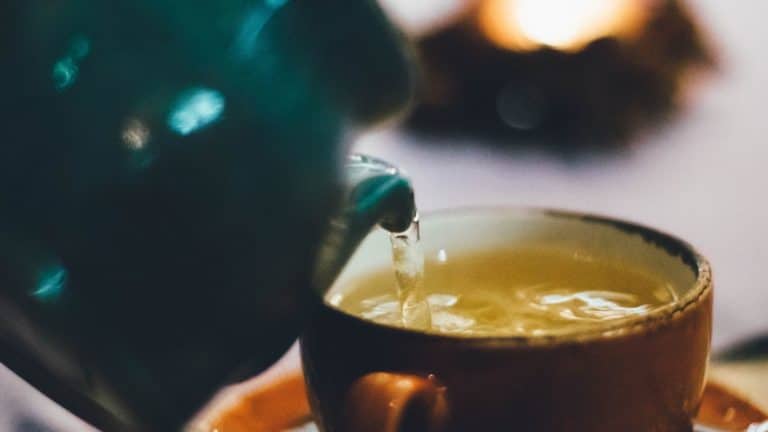
So why drink NORA Pregnancy Tea?
NORA Tea makes getting your daily vitamin C and iron easier! A good supply of vitamin C means your immune system is stronger and that your baby’s amniotic sac is stronger which may potentially help prevent premature rupture of the membranes. A healthy supply of iron can help prevent additional blood loss during birth. Every birth includes some amount of blood loss, but drinking NORA pregnancy tea and getting your daily iron can help prevent loosing too much blood.
“NORA tea stimulates your system to optimal health, optimizes mineral absorption, guards against anemias and maximizes the health of the liver, thereby helping to prevent many common pregnancy complaints, or minimize them. In my experience it prevents possible complications during the birth by helping to promote proper contractibility of the uterus, release of the placenta and by doing so it prevents hemorrhage and because of the health of the tissues, it reduces tears and the degree of them.” (Stricker)
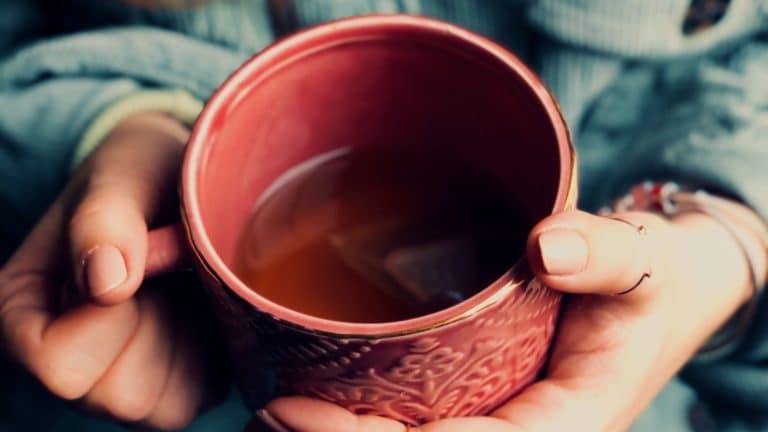
NORA Tea can make getting healthy nutrients easier
NORA pregnancy tea can be a huge help for those who are may be having a difficult time making sure to get their daily vitamins and minerals. This powerful tea mixture can:
- Super charge your immune system
- Decrease feelings of stress, lower blood pressure
- Potentially shorten your length of labor
- Alleviate hemorrhoids & varicosities
- Prevent premature rupture of the membranes (PROM)
- Reduce your risk of the use of caesarean section, forceps, or vacuum birth
- Reduce blood loss at birth
- and more!
With all these fantastic benefits in just one quart of tea a day, why not at least try a nice cuppa!
When should I Drink NORA Tea?
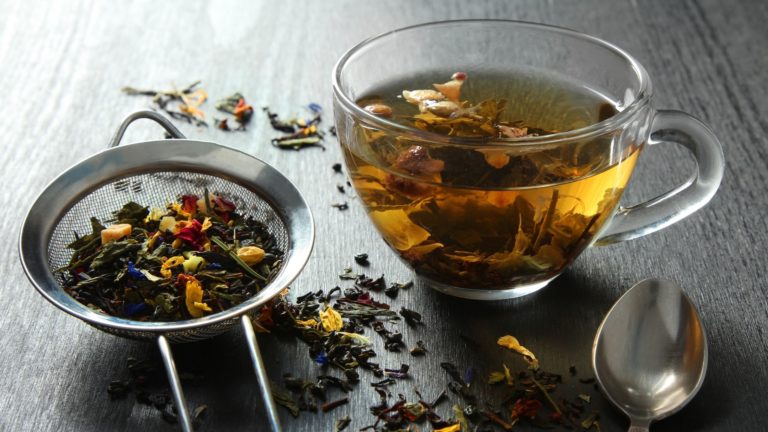
“Midwives recommend women begin to drink NORA Tea after the 16th week of pregnancy. They also recommend trying
to drink a quart daily, since then it will become a daily habit to prepare the tea. If you find it difficult to drink it daily, it is important to drink it at least 4 times a week, or half the quart daily to maintain nutritive and preventative benefits.” (Stricker)
Drinking NORA tea is also a wonderful idea for your postpartum journey as well because it will help you replenish blood stores you may have lost during birth as well as help you nurture your body while it is recovering.
Where Can I find NORA pregnancy Tea?
If you live in Oklahoma, You can purchase your NORA tea from me! If my doula and placenta encapsulation families would like to buy organic NORA tea from me, I craft the tea for them! If you don’t live in Oklahoma or have time to make your own mix of loose leaf pregnancy tea, I recommend these two packaged teas you can order online!
Earth Mama Third Trimester Tea & Pink Stork Labor Prep Tea
Disclosure: Some of the links above are affiliate links. This means that, at zero cost to you, I will earn an affiliate commission if you click through the link and finalize a purchase.
Want to learn more about herbs? Click here to learn about Yarrow, Echinacea, and Lemon Balm and how they can benefit you!
Resources
Gülçin, İlhami, et al. “Antioxidant, Antimicrobial, Antiulcer and Analgesic Activities of Nettle (Urtica Dioica L.).” Journal of Ethnopharmacology, no. 2–3, Elsevier BV, Feb. 2004, pp. 205–15. Crossref, doi:10.1016/j.jep.2003.09.028.
Parsons, Myra, et al. “Raspberry Leaf and Its Effect on Labour: Safety and Efficacy.” Australian College of Midwives Incorporated Journal, no. 3, Elsevier BV, Sept. 1999, pp. 20–25. Crossref, doi:10.1016/s1031-170x(99)80008-7.
Stricker, Bethany. “NORA Tea Handout for BSMC.Pdf – Google Drive.” Google Docs, https://drive.google.com/file/d/1O9CRDotZ_czPoLn1arV2rUq1hN5EXFgv/view. Accessed 8 Nov. 2021.
Walls, Donna. Herbs and Natural Therapies for Pregnancy, Birth and Breastfeeding. INTERNATIONAL CHILDBIRTH EDUCATION ASSOCIATION, 2009, https://www.proquest.com/openview/944ef05f1d35231223d103ee85b1a44b/1?pq-origsite=gscholar&cbl=32235.
Wells, Katie. “How to Use Alfalfa (& the Benefits) | Wellness Mama.” Wellness Mama®, https://www.facebook.com/WellnessMama, 30 July 2019, https://wellnessmama.com/188/alfalfa-herb-profile/.
